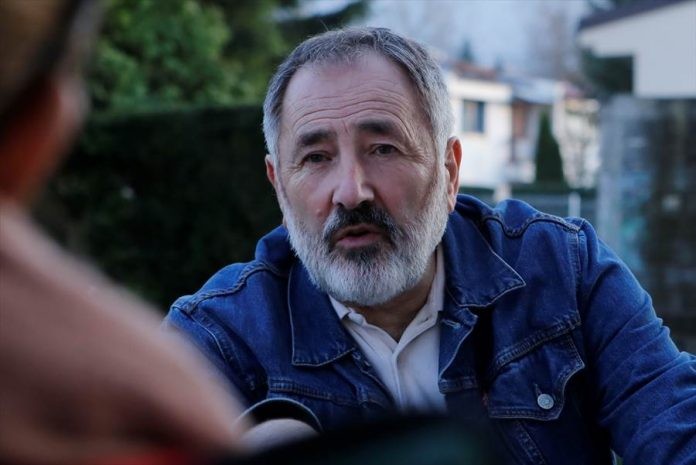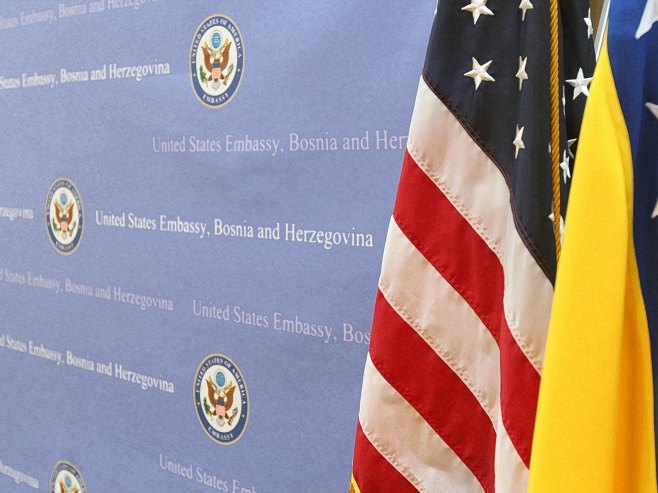The *novel “Oganj” (The Fire) by author Nenad Milkić was presented this evening at the National Library of East Sarajevo. The book portrays the suffering of Serbs in Kosovo and Metohija during the March Pogrom of 2004, and represents the third installment of Milkić’s literary series “Pogrom”, which focuses on the tragedies of the Serb people throughout the 20th century.
“Oganj” brings deeply moving stories of suffering, persecution, silent heroism, and the enduring strength and faith of Serbs in Kosovo.
Milkić explained that the book is not a chronological or documentary work, but rather a literary portrayal of one family’s suffering that reflects the collective tragedy of an entire people. Through the fate of the fictional Kovačević family, the author illustrates the collapse of both individuals and society during the wars of the 1990s across the former Yugoslavia.
“The breaking point of a person when everything around them falls apart is the thread that runs through the entire novel. This is not just a story about suffering — it’s about how the brutality of war destroys families and human dignity,” Milkić said.
He noted that “Oganj” centers on Jovana Kovačević, the third member of the family featured in his saga, depicting her inner struggle between leaving or waiting for her missing husband. The book also explores the historical and political background of Kosovo, tracing the evolution of Serb–Albanian relations.
This is Milkić’s ninth novel and the third part of the “Pogrom” tetralogy. The upcoming final volume, “Laži” (Lies), will address the suffering of Serbs in Srebrenica and the Middle Podrinje region in 1995.
The four novels — “Kosti” (Bones), “Kolona” (The Column), “Oganj” (The Fire), and “Laži” (Lies) — are united not only by their focus on Serb suffering in Croatia, Bosnia and Herzegovina, and Serbia, but also by the shared fate of one family that serves as a symbol of the entire nation’s endurance.
Despite receiving news of his mother’s passing upon arriving in East Sarajevo, Milkić refused to cancel the event, demonstrating deep respect for his readers and his work.
The hall was filled to capacity, reflecting the strong public interest. Nataša Kulašinac, director of the National Library of East Sarajevo, said that Milkić’s novels are among the most frequently read titles in their collection.
“Milkić is an author whose books are deeply sought after. We eagerly await the forthcoming novel on Srebrenica, which will bring historical truth into our library and closer to readers,” Kulašinac stated.
Milkić emphasized that his characters are fictional, but their destinies are based on real people and events, adding that Serbs must nurture a culture of remembrance because, as he said, “we forget and forgive too easily.”
The event opened with a poem dedicated to Kosovo, read by Ana Marija Pržulj, who wrote:
“That land still smells of incense, not of freedom.”
Nenad Milkić was born on February 1, 1985, in Loznica, and spent his childhood in Banja Koviljača.
His debut novel “My Name Is Dunja” deals with themes of abortion and domestic violence, while his trilogy “We Defended Košare” — including “The Last Watch,” “The Call of the Outpost,” and “The Immortal Battalion” — sheds new light on the battle for the Košare outpost in 1998–1999.
Milkić is a member of the Association of Writers of Republika Srpska and Serbia.
Source: Glas Srpske









